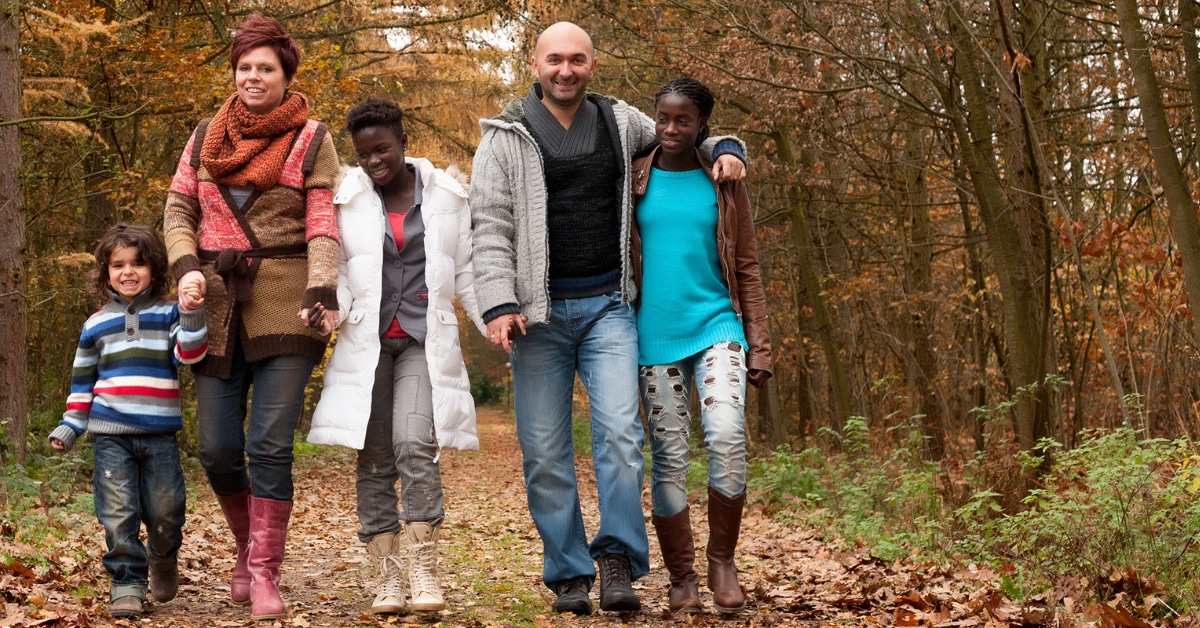Family Counseling and Family Support Services: Increase Unity in the Family
Strengthening Family Bonds
Everyone wants to get along with their loved ones. The dream of harmony and happy times is common. However, life throws curve balls and difficult situations arise. Sometimes you need a neutral third party to get your life back on track and strengthen family relationships. Working with a professional family counselor who has your best interest in mind can help you see solutions you had never considered. You can find ways to use strengths and abilities to work together as a team.
Family Therapy in California

.
What is family counseling?
We live in trying times. There are so many things getting in the way of relationships. The current state of the world can exacerbate stress, depression, and anxiety symptoms. Families continue to experience new challenges and face difficult decisions. The heavy pressure of coping can be overwhelming and can impact the ability to communicate. You may be experiencing troubled relationships. Working with a professional counselor could be just what you're looking for to find some relief and bring everyone together.
You could be experiencing conflict brought on by varying beliefs, values, behaviors, illness, aging, or mental health issues. Perhaps you are dealing with drug or alcohol abuse, adolescent behaviors, or domestic violence. Serious problems require attention to find solutions. Not just any solution will do. It has to fit with your family's values, beliefs and personalities. You can find harmony with family counseling in California.
Other issues that cause distress include the need for changes in parenting techniques, boundary setting, communication, and relationship dynamics. You can identify and resolve conflicts. We can explore roles, assess and update rules, and anything else that might create problems. The main concern is maintaining a healthy unit that keeps everyone's well-being in mind while you make changes to strengthen family relationships.
You're concerned about your family's well-being. You have tired everything you could think of so far with no real progress. You would like your loved ones to get along better and support one another during difficult times. You long for close relationships and time spent together doing enjoyable activities. You could benefit from professional help.
Family counseling services use psychotherapy to help families improve communication, resolve conflict, and address other issues. It can be helpful for families dealing with significant life transitions such as divorce, the death of a loved one, trauma, transitioning to a different life stage, or moving to a new area. Counselors specializing in working with families constructively identify and work through problems with respect.
Working with a psychotherapist can be beneficial for families who are struggling with communication. It can be hard to tell what changes to make when you want to communicate better. Counselors can help you learn how to express your thoughts and feelings effectively in a healthy way without heated arguments. Working together with a therapist can help you listen to each other differently and really hear what your loved ones say.
The main goals are to work through challenges and improve relationships so every can feel comfortable within the family dynamic. Sessions can involve all members, those having the most difficulty communicating or getting along, or those impacted by a particular issue. Each session can have a different topic and include a different combination of family members. Everything is flexible depending on the needs of the family members taking part in the session
Psychotherapy can help your family deal with a wide range of issues, including divorce, communication problems, behavioral issues, substance abuse, mental health problems, and conflict resolution. The issues you address can expand to include extended family members and cover any issues that are important to strengthening family bonds.
I can help you identify the outcome everyone wants to work toward as treatment progresses. Throughout the process, you will develop healthy coping skills, work together and improve communication to develop unity in the family. Attending sessions together can be an effective way to improve and deepen relationships and heal old wounds.
What are the benefits of online family counseling services?
Online family therapy services, also known as teletherapy, have become increasingly popular over the past few years and even more so since the pandemic. Virtual therapy has become a mainstay because of all the benefits it offers to help clients access mental health care.
If you don't all live in the same area, meeting virtually gives you all a chance to meet together without making travel plans. You will be able to meet regularly instead of spacing out appointments to accommodate schedules, travel and financial constraints.
You can benefit with less stress using virtual family counseling in California. There are several reasons virtual therapy services continue to become more popular than meeting in person.
Meeting with your psychotherapist on the internet is often much more convenient. Everyone can participate from the comfort of their own homes. You can even be in separate rooms if needed to create a safe space with increase privacy and autonomy. Taking time off work or school or battling traffic to get to appointments is unnecessary.
Teletherapy eliminates the need to pay for childcare to participate in sessions. The kids can do activities that keep them occupied while you get the help you need. Short interruptions from time to time are no problem. Babes in arms are usually more content than with a sitter.
Virtual sessions offer an extra layer of confidentiality since you can work with a counselor who lives outside your area. Privacy is particularly helpful if you are concerned about seeing your therapist in public or running into people you know in a mental health waiting room.
Meeting virtually can be an advantage for families who are reluctant to seek help from a therapist due to embarrassment or shame. Online psychotherapy is very private.
How do online family therapy services work?
I use a secure, HIPAA compliant version of Zoom for sessions. Each member can join the session from their own device, or members can join together from the same device. It is entirely up to you how the everyone connects for the session. Sometimes, teens like to join on their own device from the privacy of their room. Members can participate in sessions from different locations in California. There's no need for everyone to be in the same place.
Working virtually provides a flexible and convenient way for you to receive mental health services from the comfort of your own homes without the hassle of getting everyone together and traveling to an office. Eliminating travel is especially convenient for families with busy schedules or geographical barriers.
Video sessions are typically scheduled weekly or bi-weekly, depending on your family's needs.
What are the advantages of online family counseling services over in-person therapy?
Many studies have shown that teletherapy is just as effective as meeting with a therapist in person. A 2021 study looked at the changes in mental health delivery in the United States. They confirmed the results of previous studies about the effectiveness of teletherapy. The study added that teletherapy had better outcomes in some cases than traditional in-person services.
The 2021 study found a steep increase in mental health providers offering teletherapy services. The percentage of teletherapy providers jumped from approximately 7.1 percent to 85.5 in a very short time. I was one of the therapists in the 7.1 percent. I started using teletherapy a few years prior to the pandemic. Teletherapy allows me to see clients throughout California.
When it comes to working with a mental health professional, there are many advantages that virtual services have over in-person services. One of the most significant advantages is convenience. You can access virtual help from anywhere, at any time. Teletherapy is especially beneficial for families with busy schedules or who live in rural areas. Working with an online counselor increases your choices of mental health professionals. Another advantage of meeting virtually is anonymity. Working with a therapist outside your community can significantly benefit families who want to keep their personal lives private.

Working with a counselor can help you adjust after the death of a loved one.
What is the best type of family therapy?
The optimal type of family therapy is the one that meets your family's specific needs. The most important part of the therapeutic process is your relationship with your therapist. Everyone should feel comfortable with the counselor you choose.
The reason you are seeking professional help is the key to the type of psychotherapy that will be most comfortable. Some families may need help communicating, many are looking for help strengthening family bonds, while others may need help managing conflict. Working with a counselor can also help you deal with difficult life transitions, such as divorce or the death of a loved one. Finding a therapist experienced with the issues you want to resolve can help make the process go smoothly and touch all the essential elements necessary for your relationships to heal.
No matter your specific need, working with a licensed mental health professional can effectively improve your communication and relationships. Family counseling services are often short-term, which means it can be a cost-effective way to address your issues. Most families I work with resolve their issues within one to seven sessions. The number of sessions varies greatly depending on the issues we address, the number of members, and the level of engagement. Some families like to have monthly or bimonthly check-in sessions when dealing with ongoing challenges.
Solution Focused Family Therapy to
Strengthen Family Relationships
Solution Focused Brief Therapy (SFBT) is a type of psychotherapy that can be extremely beneficial for families. It builds on the strengths and skills of each member, things that are already working well, and your connections. With these and other unique elements, we can find solutions everyone can embrace.
Solution Focused Therapy can help you through difficult situations with hope, respect, and support. Families feel very comfortable with the respectful and inclusive process of SFBT. It focuses on moving forward , strengthening family bonds, and creating unity in the family rather than shaming and blaming. We will make an effort to build everyone up and help them feel capable and comfortable within the family unit. Strengthening family relationships involves everyone's pooling strengths to work together as a team and the ability to see the value everyone brings to the family.
Solution Focused Therapy uses questions and different perspectives to open up possibilities. Clear, positive communication and collaboration to help move everyone toward an outcome that works for everyone.
Solution Focused Family counseling in California can help you live together with support and respect. Together, we can strengthen family relationships, find solutions that fit your family's strengths, resources, and values.

What does family therapy do?
The most common purpose is to create balance and improve connection and communication between members. Working with a professional counselor helps families work through challenges and strengthen their relationships to meet everyone's needs.
As your counselor, I will ask you various questions based on your desired outcome. The questions will help you see things from different perspectives and support you as everyone works to communicate better, resolve conflict, strengthening family bonds, and understand and support one another.
Your sessions together can help you strengthen family relationships, notice different things, cope with stress better, and communicate with love and respect. Sometimes other treatment approaches, such as addiction services, medical support, medication management, or individual services are helpful as well.
Some other common reason families get professional support is to solve a problem or work through complex issues, and transitions like caregiving, chronic illness, addiction, mental health issues, or the death of a loved one.

How to find a reputable online family counselor in California: Family therapy near me
There are many ways to find a reputable online marriage and family therapist in California. Most people begin with an internet search for "family counseling near me" or something similar. You'll have better luck finding a good fit if you go deeper. When searching, look for therapists specializing in families. Also, find out what issues the therapist has experience working with most.
Instead of just using a common search term like "family therapy near me," you can expand your search to find more counselors accepting new clients by looking for an counselor anywhere in California. Licensing for mental health professionals is statewide. The license allows us to work with anyone within the state where we are licensed. You must always be within California state borders to receive treatment from a mental health professional licensed in the state of California.
Here are some search terms to help you find a family therapist or counselor licensed in California:
family therapy in California
online family therapy California
family counselor California
family counseling California
Broader searches like these give you a better chance of finding a counselor who is a good fit for everyone. Searches like "marriage and family therapy near me" limit you to a small geographical area and limit your chances of finding a therapist who specializes in working with families and is accepting new clients.
Most marriage and family therapists (MFTs) only work with individuals. It takes extra training to work with couples and families. Just because a mental health professional is a licensed marriage and family therapist (MFT) doesn't mean they work with couples or families. An MFT can work with individuals, couples, and families. It is most common for MFTs to only work with individuals. Fewer MFTs work with individuals and couples, and even fewer also work with families. The lower percentage of therapists working with families can make it more difficult to find a qualified mental health professional.
Another way to find a reputable online family counselor in California is to ask friends or your primary care physician for referrals. Once you have a few names, you can research each one to get a feel for how they work. Spend some time on their website and see if you feel comfortable.
Once you've found a few potential therapists, the easiest way to know if they're right for you is to schedule an initial consultation. Most therapists offer free video consultations so you can get to know them and ask questions about their practice.

Common reasons families choose family counseling services
There are many reasons why families might look for professional assistance. Some common reasons include:
To address communication problems.
Unfortunately, families sometimes have communication problems that can lead to misunderstandings and conflict. You can resolve these problems with the help of a counselor.
To deal with a major life transition or event.
Major life transitions or events, such as a blending families, divorce, the death of a loved one, or a move to a new city, can be difficult for families to deal with on their own. Attending sessions together can provide support and guidance during these challenging times.
To address mental health or addiction issues with one or more members.
When it comes to mental health and addiction, loved ones are the most important part of the recovery support system. When one or more members are struggling, psychotherapy can help address these issues and provide much-needed support for all members. You can communicate better, understand and support each other, establish trust, and work through difficult situations.
To handle stress better together.
Stress is a common problem that affects everyone in the household. When one member is stressed, it can have a ripple effect on everyone else. The good news is that there are ways to manage stress as a unit.
To work through unresolved issues from the past and/or trauma that interfere with healthy relationships in the present.
Many families have unresolved issues that can arise from time to time and cause conflict. Trauma can also get in the way of creating healthy family relationships. Working with a family counselor can help keep these issues from interfering with your dynamics.
To help children successfully navigate adolescence and emerging adulthood.
Many of today's teens and emerging adults face challenges that their parents never imagined when they were young. Psychotherapy can help families learn how to support their children as they navigate these new challenges.
To address shifting relationships with adult children.
As your children enter adulthood, your relationships with them change. The transition of changing roles can strain relationships and can benefit from strengthening family bonds. Over time as the relationship continues to shift, you might find your children supporting you. Family counseling for adult children can help make transitions smoother.
To resolve conflict or crisis.
Working with a counselor creates the opportunity to address conflict or crisis with a trained professional who can help you work through these issues safely and productively.
To strengthen family relationships.
Sometimes family members drift apart. Over time you talk less and less. Your interactions become short and disconnected. It may feel like you no longer have anything in common. Scheduling a regular time for the family to get together and connect on a deeper level with a professional counselor to set the tone can make it easier to revive and deepen your family's relationships.
To address neurodiversity in the family.
Neurodiversity tends to run in families. When family members have different ways of communicating and interacting it can be helpful to find different perspectives to help create unity in the family. Parents of neurodivergent children can experience challenges. Figuring out how support children with ADHD and autism and allow them to explore their interests, avoid overwhelm, and recognize their sensory preferences can complicate parenting.
Working with a neurodiversity-affirming therapist can make it easier to see solutions that meet everyone's needs.
To adjust to life with a loved one diagnosed with chronic illness.
It can be difficult to adjust to life with a loved one is diagnosed with a chronic illness. A new diagnosis can be overwhelming and difficult to understand. Psychotherapy can help you manage stress and cope with the challenges of having a chronically ill member.
To provide support for members as they cope with a loved one's terminal illness or death.
The heartache of a medical diagnosis or losing a loved one can overwhelm the everyone. Attending sessions together can provide much-needed support as you cope and make decisions while dealing with a serious illness or death.

Family Counseling for Communication
It's difficult for families to avoid communication problems. Psychotherapy can help improve communication. Many health professionals often recommend professional support to help families communicate more effectively.
Communication is key in any relationship, and families are no exception. If members are not communicating effectively, it can lead to misunderstandings, resentment, and conflict. Meeting with a counselor together can help you learn how to communicate more effectively.
During sessions, members are encouraged to talk openly and honestly about their thoughts, feelings, viewpoints, and experiences. Counselors can help with communication skills and strategies for dealing with complex topics. A safe environment with a counselor can also help resolve conflict.
Consider working with a professional counselor or therapist if you're having communication problems. It can make a big difference by improving your family's overall communication and relationship health.

Family Counseling for Life Transitions
Most families go through some type of change or transition at some point. It is common to go through many life transitions. Some examples are divorce, the birth of a child, moving to a new home, or the death of a loved one. These changes can be stressful, and everyone can have difficulty adjusting. Professional support can help you deal with life changes and transitions.
Working with a counselor can help you cope with stressful changes, support one another, communicate better, resolve conflict arising from change, and understand each other's needs under new circumstances. You can work through grief, loss, and other difficult emotions and situations with therapeutic support. Working with a counselor can make the transition easier for everyone involved.

Family Counseling for Emerging Adulthood
As children become adults, they become more independent and don't need their parents as much. However, this transition can be difficult for some people who are not used to being on their own or for parents who suffer from empty nest syndrome. If you are having trouble adjusting to adulthood or leaving home (sometimes called failure to launch), meeting with a therapist together can help. It can also help create a balance in your parental relationship.
Psychotherapy can help you communicate better and set boundaries. It can also help you deal with conflict and build a support system. A therapist can provide support and resources if you feel stuck, lost or struggle with your mental health.

Family Therapy for Addiction
Addiction is a significant stressor. It can tear families apart. Some think that once they have cut ties with the addicted member, they can do nothing more. However, family therapy for addiction is an effective way to help relationships heal during rehabilitation and beyond.
Working together as a team is a vital part of addiction recovery. Sessions typically include all immediate and extended members who want to participate. We can cover whatever issues are most important to you to bring everyone back together. The goals are to help your loved one who struggles with addiction recover, help everyone learn how to be supportive without enabling them, and repair relationships that addictive behaviors have strained. Other common things we work on are:
Anger
Anxiety
Depression
Worry
Fear
Obsessive thoughts
Painful memories
Hurt feelings
Mistrust
Resentment
Betrayal
Financial issues
Responsibilities
Respect
Self-esteem
Self-worth
One of the benefits of therapy is that it can bring everyone back together after addiction has damaged relationships and torn them apart. It provides a safe place to heal from addiction and get back to being the person you truly are without substances. You can create new healthy communication patterns and boundaries to aid in the healing process. Your loved ones deserve to enjoy each other.

Family Therapy for Chronic Illness
Everyone is affected when a member suffers from a chronic illness. The strain of caring for a chronically ill loved one can lead to exhaustion, overwhelm, misunderstandings, conflict, stress, depression, and anxiety. The support of a counselor can help you understand and cope with chronic illness.
During sessions, you can all communicate openly about how chronic illness impacts your daily life. You can come together to support each other and develop a support system. As a therapist living with chronic illnesses, I can help you with coping strategies, mindset, resources, and different perspectives. Our sessions together can help you adjust to the changes and challenges of chronic illness.

Family Therapy for Mental Illness
When a someone struggles with mental illness, everyone feels the impact. All the different aspects touch everyone. Mental illness requires the help of a professional. Things can go more smoothly when the everyone is on the same page and understands what to expect. With the support of a therapist, you can help you come together and make a plan to support your loved one.
Family therapy for mental illness can take many forms, but common main goals are improving communication, resolving conflict, and increasing support. Most sessions include all members. However, I may meet with each member individually from time to time.

Family Counseling for Caregiving
Caregiving can be difficult. It is a great responsibility that can take over your life. Coping with dementia can add another layer of difficulty. You may experience a wide range of intense emotions, including pressure, overwhelm, frustration, sadness, anger, worry, and guilt. Complicated feelings can arise from many different stressors, such as exhaustion, caregiver stress, sleep deprivation, financial concerns, lack of downtime, and the challenges of caring for a loved one.
Working with a counselor can be an effective way for caregivers to manage emotions and find support from loved ones. In sessions, you can come together to find balance, cope with stress, improve communication, increase cooperation, set boundaries, and learn to navigate the medical system.. You can also improve relationships and provide support for all everyone.

Family Therapy for Adolescent Behavior Issues
Adolescence is a time of significant behavioral and hormonal change. It is also a time of separation and developing independence. The teen years can be a challenge for both teenagers and their families. Many families struggle to cope with various challenges and may benefit from the support of a counselor.
Psychotherapy can help address communication issues, conflict resolution, boundaries, respect, and other problems that may contribute to adolescent behavioral issues. The goal of family therapy for teens is to bring everyone together and to improve communication and relationships.
Therapy can benefit your teen in several ways:
identify and address underlying issues
set boundaries
clarify expectations
improve mutual respect
provide support and guidance
support parents with parenting
develop healthy communication patterns
There are a variety of adolescent challenges you can address:
teenage pregnancy
gender issues
drug and alcohol abuse
eating disorders
self-esteem and self-worth issues
academic difficulties
running away
self-harm (cutting, burning, risky behaviors)
suicidal thoughts
suicide attempts
anger management
Sessions typically involve all members of the immediate family. I may also work with members individually to help them deal with specific issues that impact relationship dynamics. In some cases, you may want to implement individual services for your teen in addition to your sessions together.
If you are concerned about your teenager, schedule a free consultation to discuss specific issues and determine if therapeutic support could be helpful for your situation.

Family Therapy for Adult Children
It's common to seek therapy for family issues on your own, with parents or adult children. While some may view professional mental health support as a last resort, it can be an incredibly effective way to address long-standing issues and improve communication. It can also catch problems before they become overwhelming and impact how you function as a group.
Adult children may choose to work with a therapist for a variety of reasons, including unresolved conflict with parents, difficulty setting boundaries, lifestyle differences, difficulty communicating with siblings, or feeling disconnected. In many cases, meeting with a therapist together can resolve issues by addressing communication styles, relationship patterns, childhood trauma, or long-standing issues.
Psychotherapy can help adult children heal old wounds and develop new relationship dynamics with loved ones. Through individual and group sessions, everyone can express themselves in a healthy way, set boundaries, resolve conflicts, and build the relationship they want. With the help of a trained therapist, you can support each other through difficult times and make lasting changes to improve your life together.
How do we prepare for family counseling?
Being prepared can help you make the most of each session. Here are some tips on how to prepare:
1. Ask each member to take some time before your first session to think about what you would like to get out of working with a therapist. What is your best hope for the final outcome?
2. Be prepared to take turns. Everyone will get a chance to answer every question and share input.
3. Be respectful of each other's opinions, ideas, and viewpoints. Even if you don't agree with someone, listen respectfully with an open mind.
4. Plan to communicate outside sessions using the decisions and ideas you come up with in session.
Family Counseling in California
If your family is struggling, you are not alone. According to a 2012 study, almost one in every ten Californians seeks out family therapy services yearly. Many want help to improve communication, resolve conflict and create healthy relationships. Other families need support going through specific challenges that have impacted their lives. When we work on improving strained relationships, strengthening relationships, and changing relationship dynamics, everyone benefits. Working with a counselor can help you relate to one another in healthy ways that support your relationships and reduce stress.
No matter your family's unique challenges, psychotherapy can help you communicate more effectively, resolve conflict, work together as a team, and build stronger relationships.
I understand how important your loved ones are to you and will work with you to find solutions that work for everyone so you can live the life you want.
